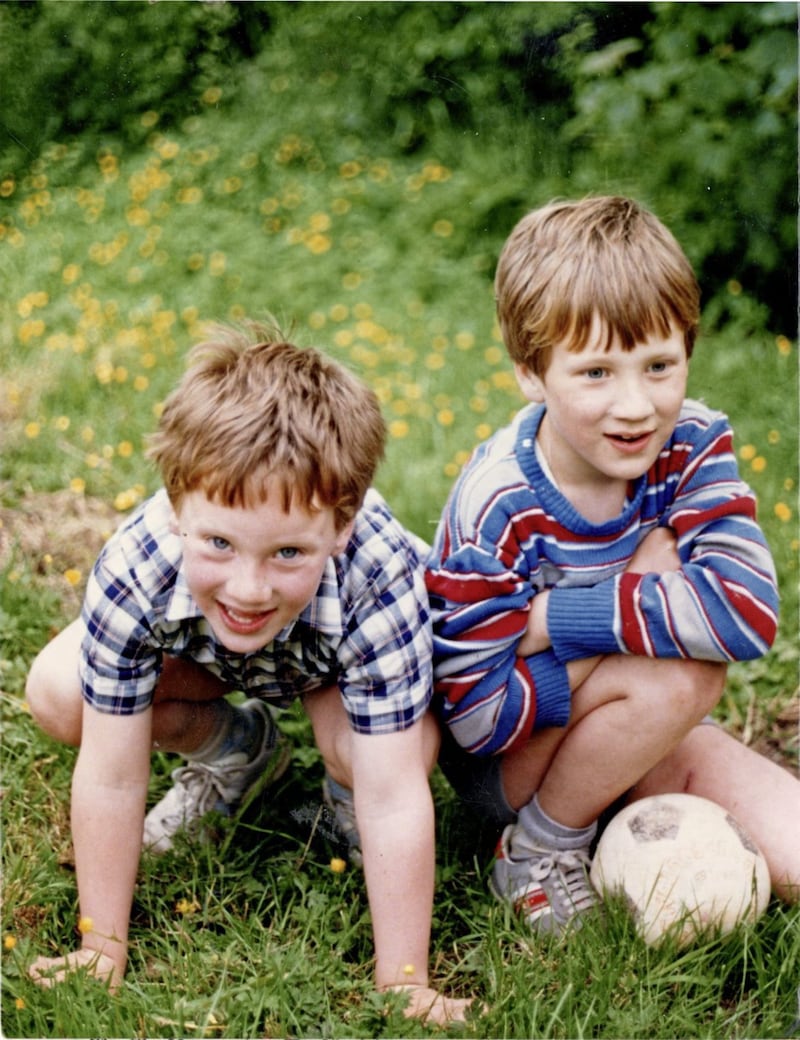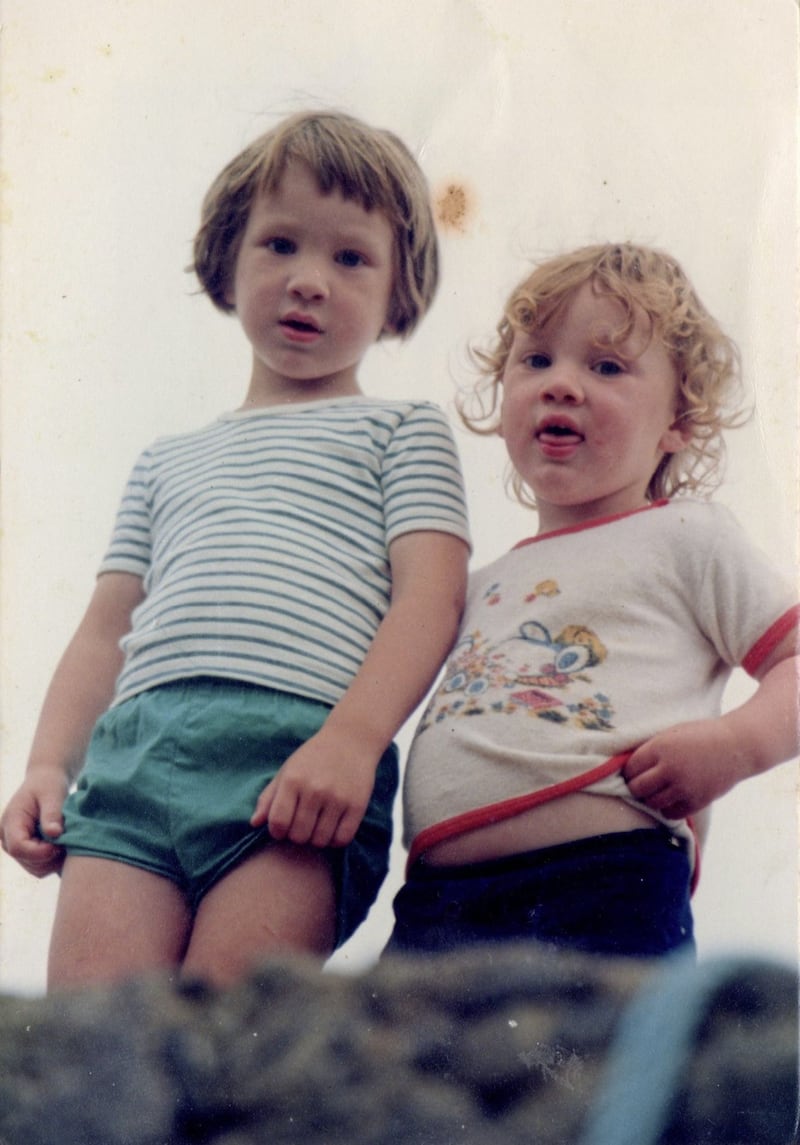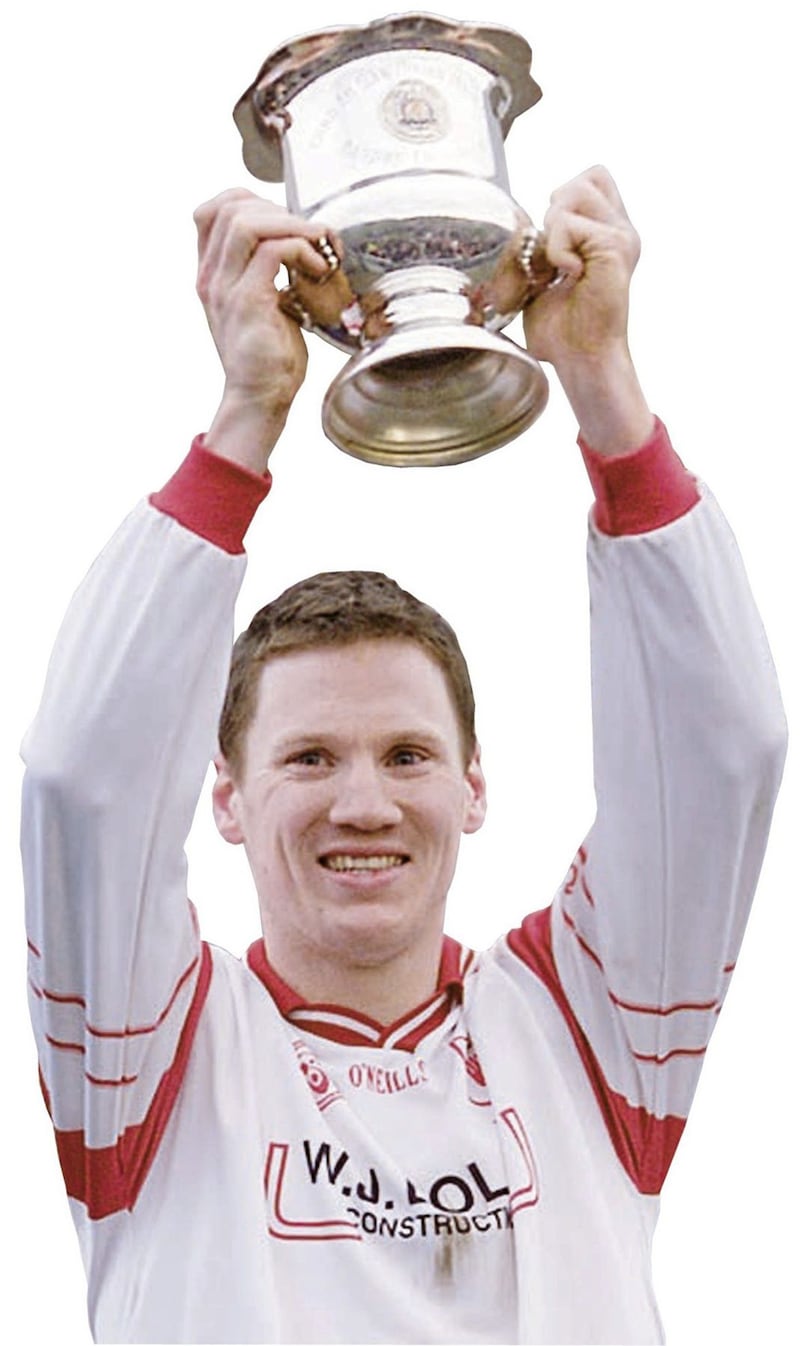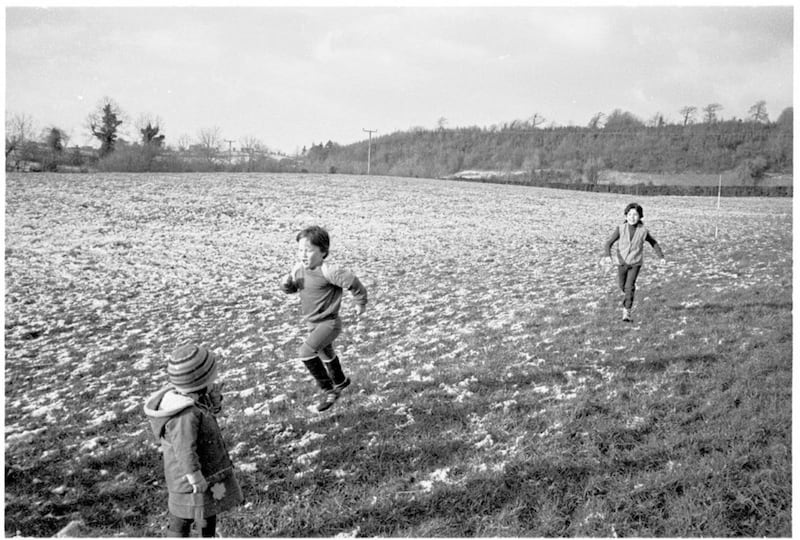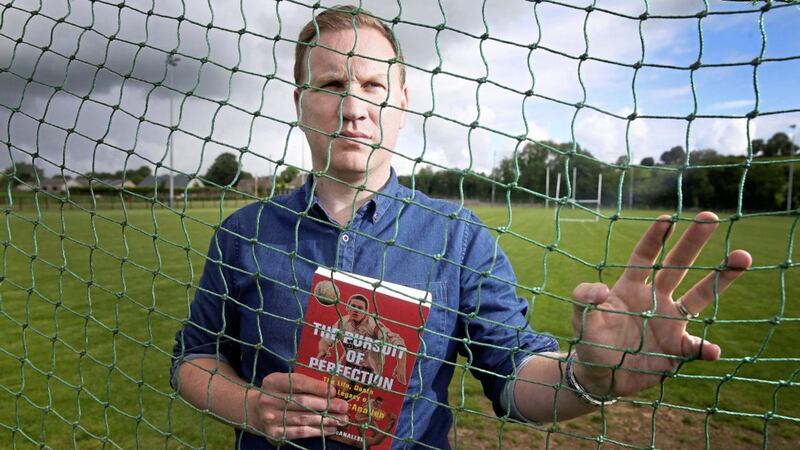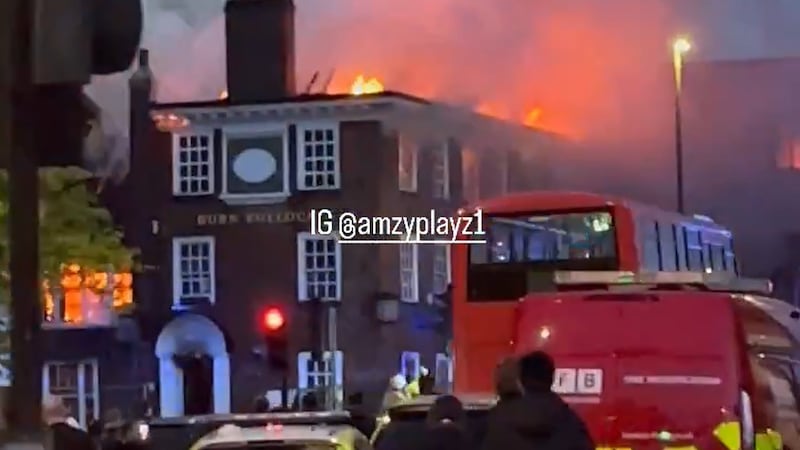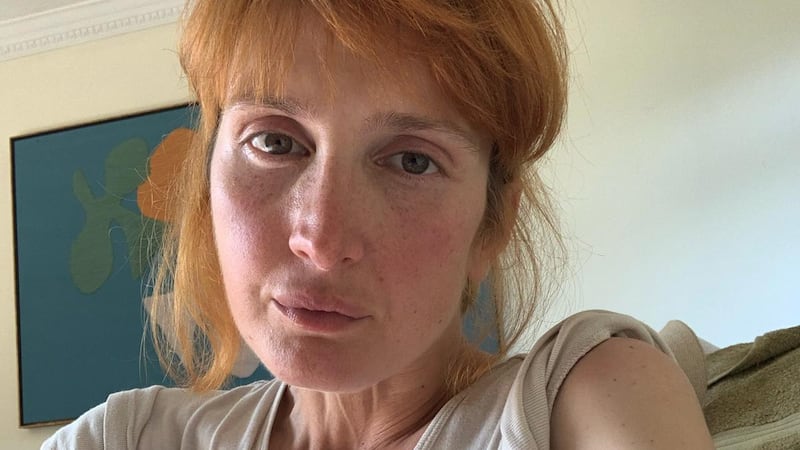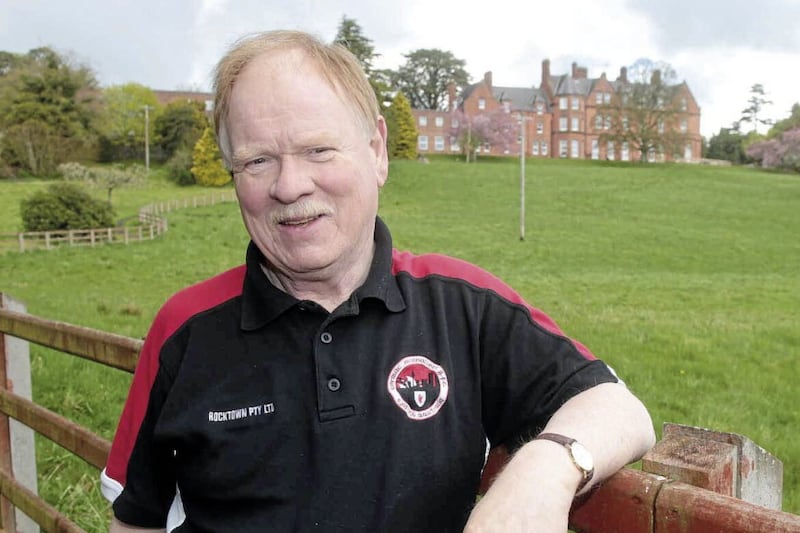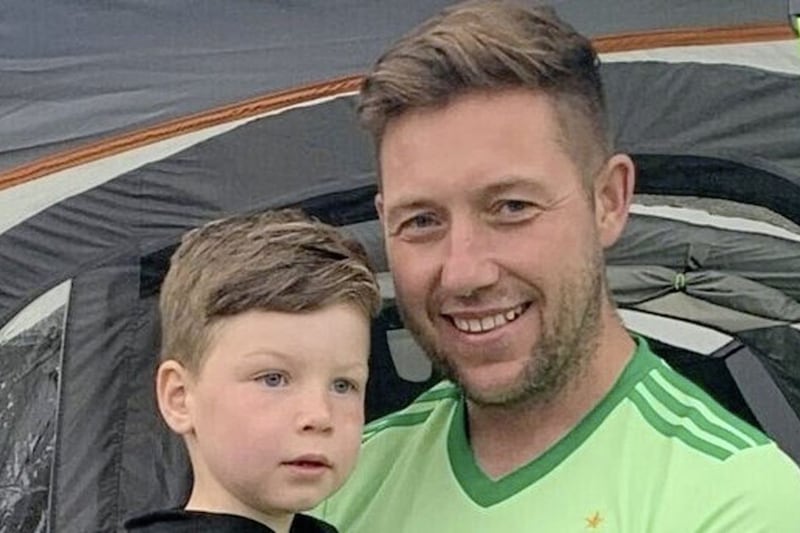A brother of one of Ireland’s leading GAA stars whose life was cruelly cut short by a rare heart condition has told how writing a book about him has been an emotional experience.
Historian Dónal McAnallen was first to raise the alarm after entering his younger brother's room at the family home in Eglish, Co Tyrone in March 2014.
In the book he gives a harrowing account of efforts to save the life of the Tyrone captain.
Aged just 24, Mr McAnallen was one of the biggest names in Gaelic football when the tragedy struck.
His sudden death echoed around Ireland as the GAA world struggled to come to terms with the loss of one of their best known figures.
Cormac had been an All-Ireland winner and Allstar the previous year and since his death Tyrone have gone on to win two more titles, leaving loved ones to wonder what heights he could have reached both on and off the field.
Outside football Cormac was also a highly regarded teacher at St Catherine’s College in Armagh and was widely considered a role model for other young people.
Mr McAnallen revealed that although the idea of writing a book about his brother had been talked about for years, it was only in recent times that he set his mind to the task.
He said as part of his research he used detailed medical reports in a bid to piece together exactly what happened to Cormac, a process that at times was an emotional one.
“On one level ostensibly it’s the least emotional thing but in actual fact I found it can be the most because you are look back thinking is there something we missed, is there something that he didn’t fully convey to us,” he said.
“Probably not, but you can’t help but think could something have been done differently.”
In the book Mr McAnallen gives a detailed account of how he found his brother in bed in their family home.
“For me, being the recorder of things that I am and slightly compulsive, always asking questions, even though it was a very sensitive matter and emotional in ways, maybe it just felt like a natural thing to do, recording these things,” he said.
He describes how a local priest administered the last rites as medics fought to save his brother, and says he spoke to almost everyone involved while researching the book.
“I just thought given the absolute mystery and shocking nature of his death I thought that recording it in minute detail became that more important,” he said.
The author revealed that despite the passage of time he still holds some regrets.
“You regret you didn’t say things, you regret the things you didn’t do, you said and you didn’t say,” he said.
“I am worrier by nature, obviously, as was he. Its never weighed me down to the point where I can't take this.
“It's there, it’s part of the story, it's part of the story.”
A huge positive to emerge from the tragedy was the setting up of the Cormac Trust, with the aim of raising awareness of sudden cardiac deaths and promote screening among young people.
It has also been widely praised for its work to provide automated external defibrillators (AEDs) for sports clubs and communities to prevent other deaths.
Mr McAnallen said that when he hears about someone suffering from a similar condition to Cormac being saved, he wonders “could I have done something to save him because I was there that two minutes before everybody else”.
“But that’s not the reason I wrote the book. Guilt was not the reason I wrote the book.
“It’s one of the things that comes out in it, but there’s also a pride and there’s also fond memories.”
The book includes a series of diary entries made by the sporting star which provide a glimpse into his life as he rose to the top of his sport.
They reveal that during a trip to Australia with the Irish international rules team in late 2003 he felt a period of emotional upset.
"He was trying to be this role model for everybody,” said the author.
“First of all there’s the pressure of achieving the ultimate in the sport which involves a huge amount of personal commitment and sacrifice and pain.
“And the workload wasn’t getting any smaller and he was trying to do his best at school and he was trying to be a club man too and trying to be an Ireland player and trying to be a role model, turning out for every function people asked him for."
However, he said Cormac was simply conscientious by nature.
"You can also sense this absolute determination that he wasn't going to neglect pupils and that he wasn't going to neglect family or anybody have reached that level. He was still going to be the same person as ever."
Mr McAnallen said he decided to tell the story 13 years on "because people were still interested in Cormac and had been influenced by issues that arose".
"Although they had been covered in great detail I knew there were several other stories to it, other dimensions that I was well placed, in fact the only person that could really recount with any degree with depth or accuracy," he said.
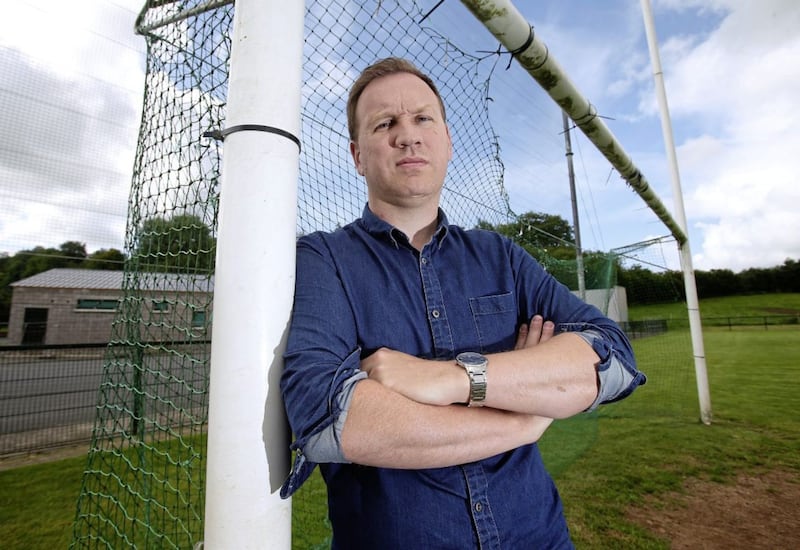
"So that includes his personal evaluations as a player and his diaries and shared memories as well."
"....I was also aware that there was a certain inspirational quality to it... a story for young ones."
He said part of his brother's legacy is that he is "still respected and revered".
"So many years on and still that memory saves lives and provides inspiration," he said.
Describing his brother as "exceptional", he said Cormac will always be an example to others.
"He sort of became a role model very quickly," he said.
"We didn't realise how much so until he died."

